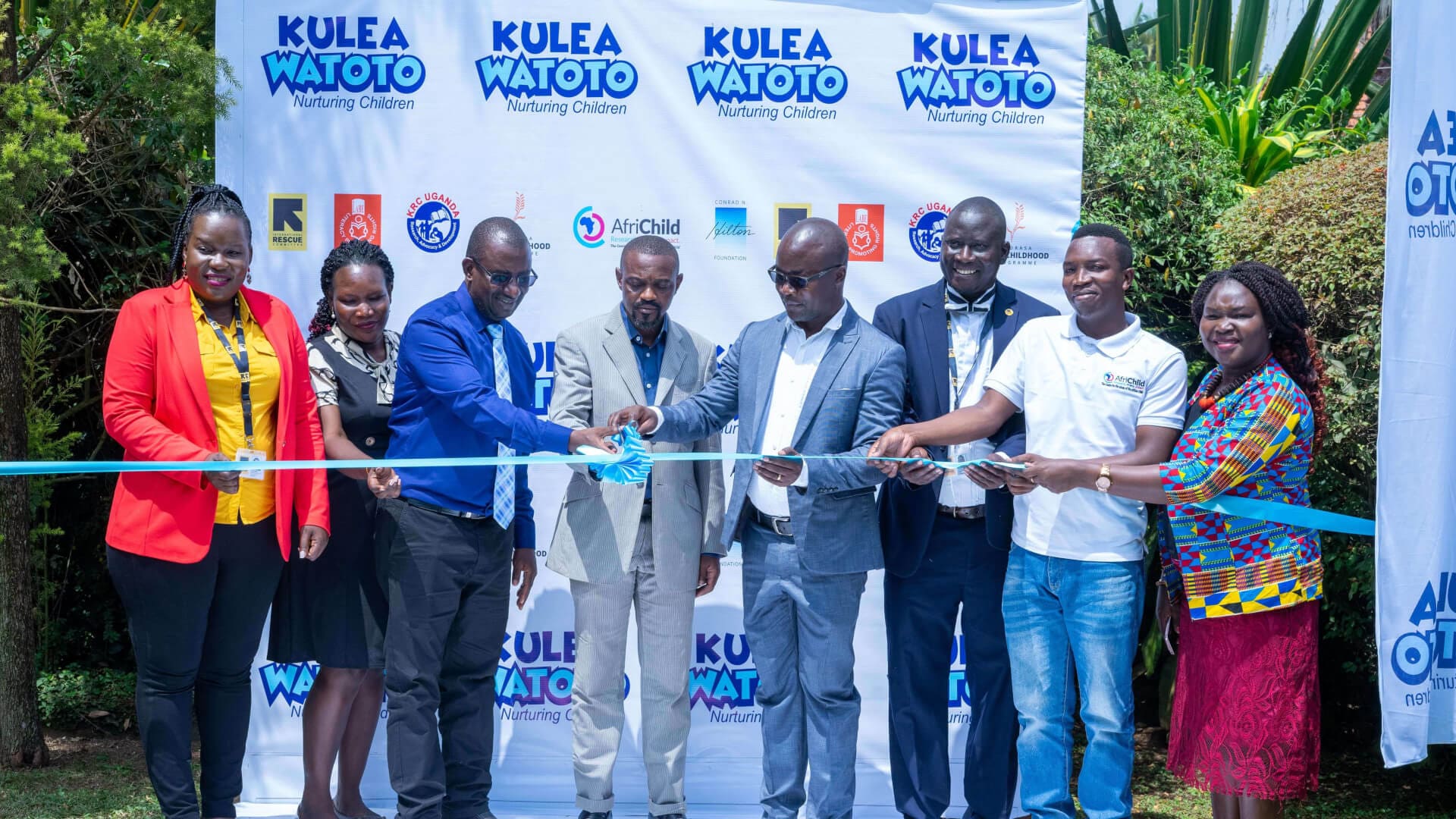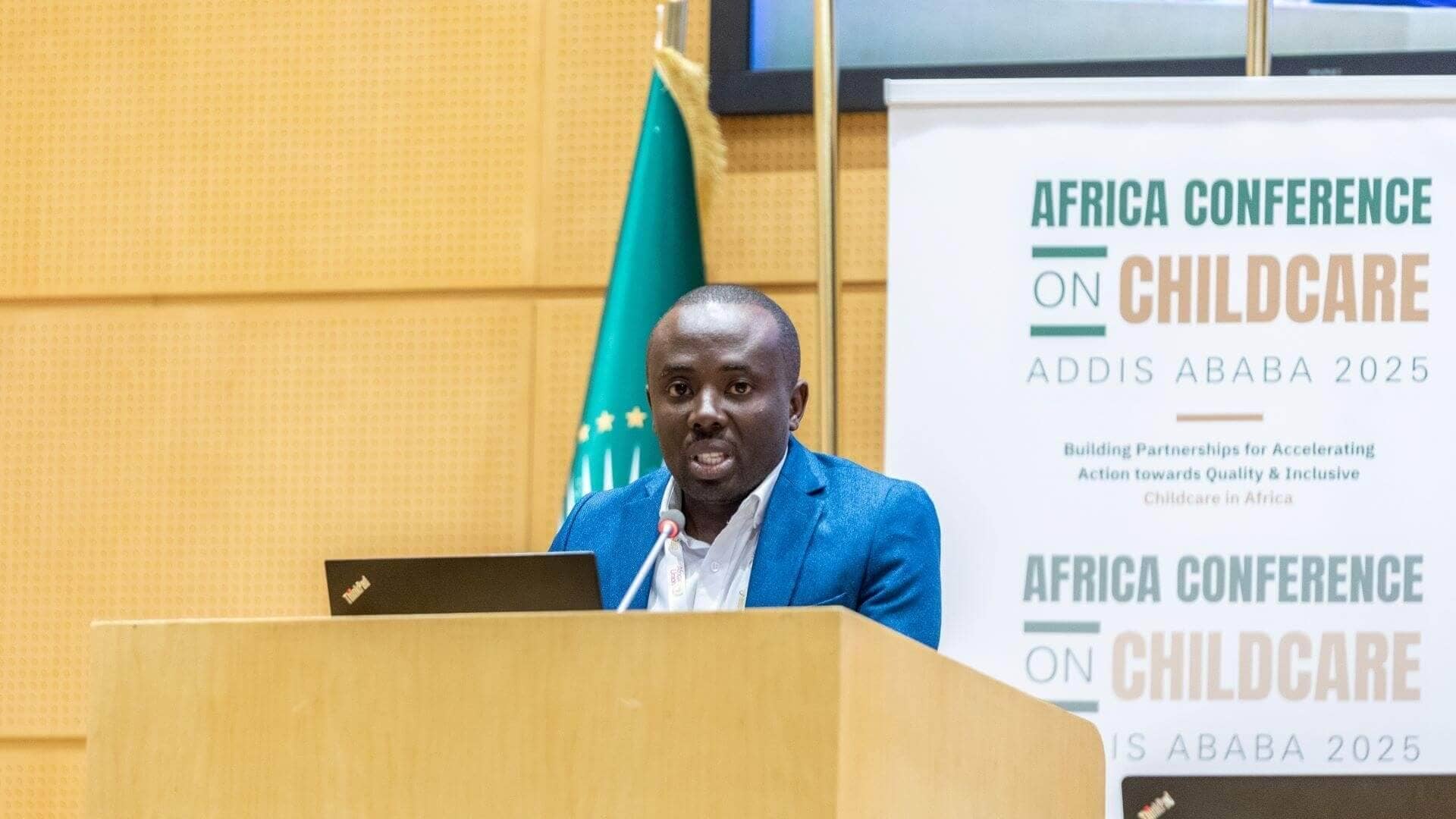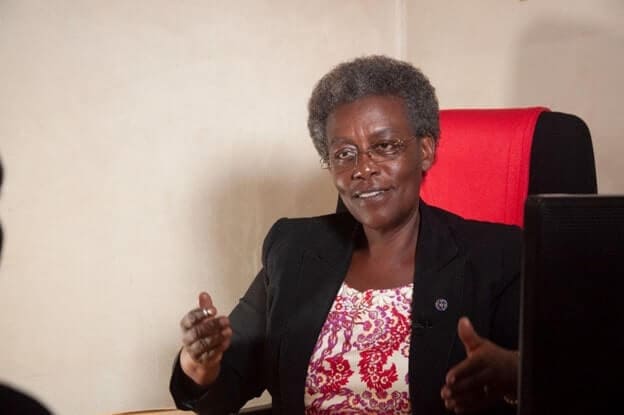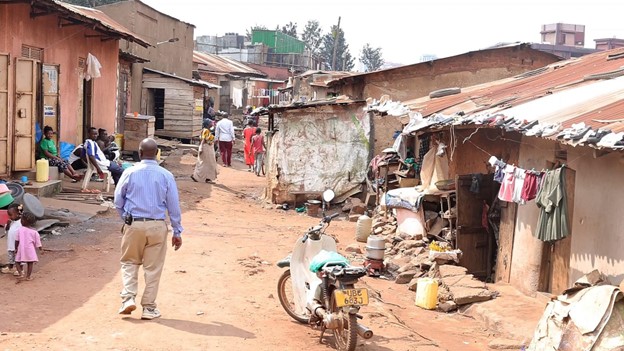Our Stories Building Bridges of Support: How the Global Refugee Forum can impact the lives of refugee children
Building Bridges of Support: How the Global Refugee Forum can impact the lives of refugee children

Uganda hosts the largest number of refugees in Africa, currently standing at more than 1.5 million with 81% women and children, and nearly 40% below the age of 12. This is according to the United Nations High Commission for Refugees (UNHCR) statistics. Two-year-old Grace, is one of these children and lives with her mother Ajonye in Bidi Bidi refugee settlement, Yumbe district in Uganda. Her mother fled the conflict in South Sudan, and struggles to provide basic needs such as food and housing for Grace and five other children in the settlement. Grace cannot access quality early childhood development services such as early learning and care since her mother doesn’t have a stable income with minimal opportunities to earn a living in the settlement. According to UNICEF, only a tenth of children between 3 and 5 years are enrolled in formal pre-primary education in Uganda, and this is even worse in refugee hosting districts. This is because preschools are predominately privately-run and located in urban areas. Other children in emergencies, just like Grace, live in deprivation as well, with no access to early learning opportunities and care.
This December (13th – 14th), world leaders will convene in Geneva, Switzerland at the Global Refugee Forum (GRF). Held after every four years, this Forum is the largest international gathering on refugee related issues. It is intended to support the fulfillment of the Global Compat on Refugees - a framework for more predictable and equitable responsibility sharing, recognizing that a sustainable solution to refugee situations cannot be achieved without international cooperation. The Forum provides the opportunity for States and stakeholders to announce concrete pledges and contributions, highlight progress made, share good practices, and take stock of the challenges and opportunities ahead.
Uganda is a co-convener of the 2023 Global Refugee Forum together with Colombia, France, Japan, Jordan, and Niger, and it is co-hosted by the Government of Switzerland and UNHCR. This year’s Forum presents a unique opportunity for leaders and stakeholders to demonstrate their commitment to addressing the needs of refugee children like Grace.
Uganda is widely recognized for having the most progressive refugee policies in the world, as refugees can move freely, work, and access social services such as health and education just like the nationals. Additionally, the Government of Uganda through the respective line ministries has already made significant commitments to be presented at this year’s GRF in Geneva including: To continue managing and integrating the infrastructure and services, specifically in health, education and water, aligned with the government requirements; To create up to 300,000 viable economic opportunities for refugees and host communities by 2027; To provide opportunities to all refugees to access electronic Conventional Travel Documents and birth certificates by 2027 to foster socio-economic rights and the rights of the child. among other pledges. However, with the rising number of refugees due to conflicts in neighboring countries and the recent funding cuts for refugee interventions, there is increased pressure on social services and as a result the conditions of women and children are deteriorating with reduced access to quality services.
Refugee Voices
Anjoye, a mother of six children living in village 14, cluster 2, zone 1- Bidibidi Refugee Settlement in Yumbe District, wants leaders to commit to increasing investment in children. She believes that more resources targeting refugee children will help them access early opportunities in life.
“At this meeting (GRF), our leaders should promise to increase the money for providing education for our children. Even us the parents should be supported to be able to work and earn some money.” - Anjoye shared when she was asked what the focus of the GRF should be this year.
The significance of pledges and commitments to support refugee children cannot be overstated, particularly in the context of Uganda, which hosts a significant number of refugees amidst continuous influxes from neighboring countries such as South Sudan, Sudan, and the Democratic Republic of Congo which are all struggling with conflict and instability. The commitments by governments, humanitarian agencies, private sector, and donors made at the GRF should contribute to addressing the specific needs of refugee children and ensuring that they receive the necessary care, protection, and support.
Why prioritize Early Childhood Development (ECD)
Evidence shows that investing in ECD for disadvantaged children creates better education, health, social and economic outcomes that increase revenue and reduce the need for costly social spending. Also, the households of these children need to be economically empowered so that they can sustainably provide care for the children. It is imperative that global leaders use the GRF to come up with concrete plans and commitments to invest in interventions for children – highlighting specific commitments on ECD.
Uganda has made efforts in supporting the education for refugees and has developed the Education Response Plan II for Refugees and Host Communities. The plan puts into consideration early childhood development and targets to have a total of 86,855 refugee children of 3-5 years enrolled in ECD centers by June 2025. However, it is estimated that currently over 116,190 refugee children of 3-5 years have no access to ECD centers or pre-primary education, and this is highlighted in the Education Response Plan II.
The issue of financing for ECD interventions must be given attention because of the existing gaps including limited financing. Interventions that use a two-generation approach – supporting both the children and their parents are more likely to produce a huge positive impact on the lives of children. Government agencies, donors, humanitarian actors, and partners need to allocate more funds to ECD interventions so that children can have access to the right care and services in their early years, which can never be regained if missed.
About the author:
Godfrey Mwesigye is the Senior Policy and Advocacy Manager (Kulea Watoto Project) at the International Rescue Committee (IRC).




